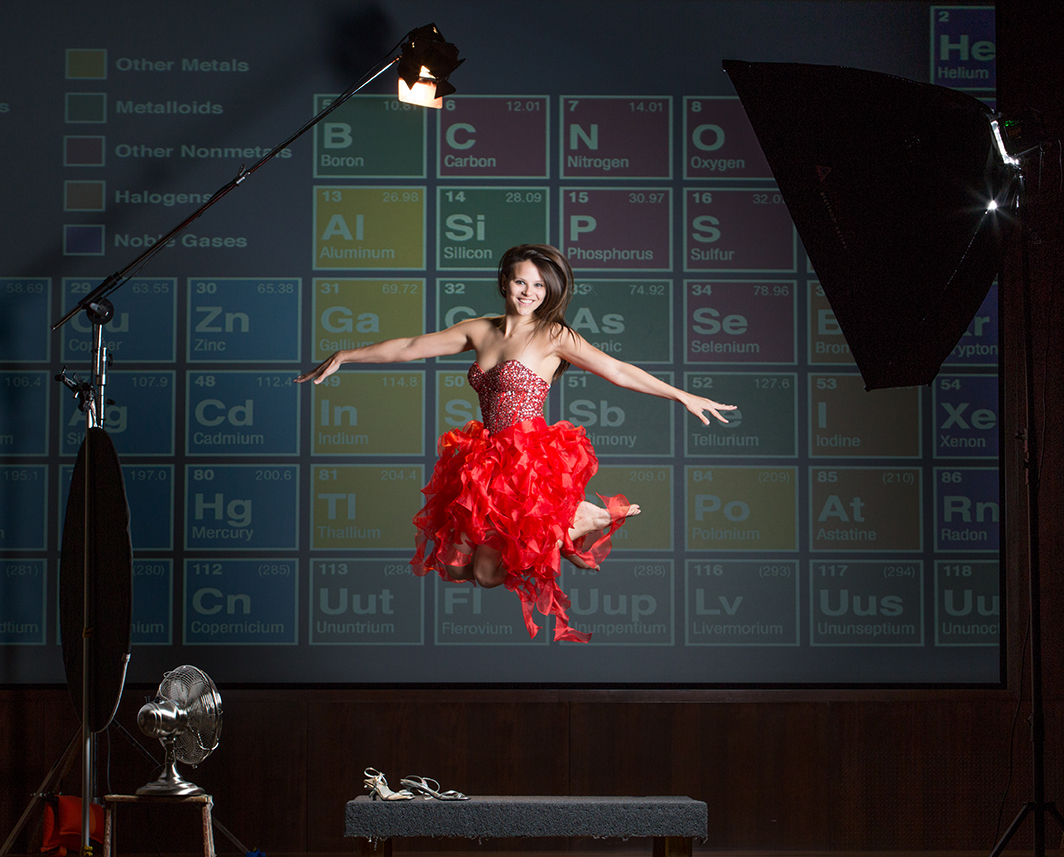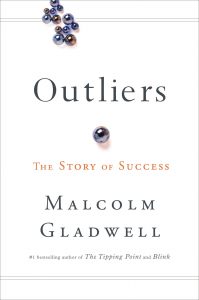Karson Brooks: On Pageantry, Women in Science and Becoming an Outlier
By: Cynthia Adams | Photos By: Nancy Evelyn
Karson Brooks is an unconventional, brainy beauty who has competed in beauty pageants, but one with solid scholastic credentials who is on her way towards a doctorate in chemistry. Although she just began graduate studies this past summer, Brooks can as readily discuss polymer molecules and nanotechnologies as she can chat about good books, recipes, or Pinterest.
Her love affair with science began her senior year of high school in advanced placement chemistry. But it was a rocky start. “I used to cry all the time until I figured it out,” Brooks admits with a laugh. While attending the Dean’s Research Award reception at UGA last summer, she talked about her love of science. “I think my mom had a lot to do with that. She always taught me that I should want to be intelligent over beautiful because beauty eventually fades.”
The Montgomery, Ala. Native joined Alpha Omicron Pi while an undergraduate at the University of Alabama. Brooks speculates that she was possibly the only one among her sorority members who completed a chemistry degree. She was a high-achieving undergraduate who made outstanding grades, enabling her to graduate summa cum laude.
“I never actually got teased for being smart in school,” she says. “I think I got teased more when someone got a higher grade than me on an assignment, which always drove me crazy. I think I just owned being smart. And if kids thought that was weird or uncool, I didn’t really care because that’s what I needed to be.”
At Alabama, she joined research projects and got her work published, soon on her way to becoming a scientist. Brooks had an opportunity to work on a research project at Pennsylvania State University as part of her undergraduate experiences. While there, she visited Dow Chemical Company. “At Dow, I saw firsthand how an industrial laboratory functioned. The experience was extremely different from my expectations. I was fascinated by the company labs and by the fact that everyday chemists are developing new products and technology to make our lives better.”
In 2014, she received the national Science Foundation Graduate Research Fellowship, which is based on intellectual merits and grade point average. (She was on the President’s List at Alabama for eight consecutive semesters.) “Of the 14,000 that applied for it, 2,000 got it,” Brooks says with quiet pride.
But this future chemist was one who had beauty pageant experiences as well. “I love dressing up and being girly, but I also want women to have the same opportunities as men. I think we can definitely have both.”
Whatever she did, Brook proved she was in to win. All of which drew comparisons with Reese Witherspoon’s character, Elle Woods, in the lighthearted comedy Legally Blonde. The film portrays Woods as a stereotypical sorority sister who prizes her fashion sense and privileged lifestyle. But the character proves her abilities as a law student, ultimately shattering the stereotypes. Brook also broke with stereotypes.

Pageant wins provided academic scholarship money for Karson Brooks, who also happened to be a STEM scholar. She is a Presidential Fellow, the highest fellowship given to incoming graduate students.
“I actually did get compared to Elle Woods as a kid,” Brooks says. “I wanted to be a lawyer for the longest time as a kid because of that movie.” Brooks’ pageant experience was confined to merely two competitions, Brooks clarifies. “I was in my high school pageant. But I didn’t win anything.” Yet that didn’t exactly discourage her, either.
“I was also in Houston County’s Junior Miss (which now is America’s Distinguished Young Women). I didn’t win; however, I did place in scholastic achievement (grades, ACT score, etc.).”
Brooks’ pageant talent was a comedic monologue, which placed her in the top eight contestants. Brooks also won the essay contest, and still remembers the topic. “The prompt was, ‘describe a time in which you were your best self.’”
Brooks must have been a gracious, congenial loser. “I was named Miss Congeniality, voted on by my fellow 28 contestants.”
But the real bonus was that Brooks received $3,200 in a cash scholarship from her pageant experience, “which helped tremendously with buying books, class fees, etc.” She took the money and headed for the science lab— not another stage.
“After that, I hung up my pageant dresses, but I have always been a fan of the Miss America organization since I was a little girl, especially the organization’s platform of empowering women in the STEM fields.” (STEM includes science, technology, engineering and mathematics.)
Brooks entered Graduate School at UGA in June of 2013. She is the recipient of several other fellowships from the University of Georgia, and is a Presidential Fellow, which is the highest fellowship given to incoming graduate students. Due to her undergraduate degree in chemistry, a STEM discipline, she was selected for the 2013 UGA bridge program. The summer program, sponsored by the Graduate School, allowed her to begin her research early.
She began her UGA research in Jason Locklin’s lab, studying surface-initiated polymerization and post-polymerization modifications of surfaces. Working closely with a mentor, Brooks is learning the methods and protocols of developing polymer brushes.
She plans to complete her doctorate in 2018. “Ideally, I want to make consumer products. I want to do something that has a practical application.”
BROOKS CAN AS READILY DISCUSS POLYMER MOLECULES AND NANOTECHNOLOGIES AS SHE CAN CHAT ABOUT GOOD BOOKS, RECIPES, OR PINTEREST.

Karson Brooks, PhD candidate in Chemistry
BROOKS RECENTLY SHARED HER THOUGHTS WITH THE GRADUATE SCHOOL MAGAZINE ON SUCCESS AND WOMEN IN STEM.
Q.When you imagine yourself 20 years from now, where do you see yourself, and what is your occupation? What about 40 years from now?
A.In 20 years, I hope to have a job that I’ve had for the last 15 years. I hope to be a research scientist for a large chemical company. I hope to have made a product that resulted in helping someone. I also hope to be married and have at least one child. And I hope I’m doing something that I love and that I’m happy. In 40 years, I hope everything is the same as 20 years (with more science under my belt, of course), and I hope I’m close to retiring! But most of all, I hope I’ve accomplished something great in my lifetime. I don’t care about fame or attention. I just want to be able to leave something great behind for other generations.
Q.Do you think women get equal encouragement and support to enter science and STEM disciplines? Why or why not?
A.That’s a little tough for me because throughout my career and life, I’ve been told I’m just as good as a boy. I was taught that there’s nothing I can’t do (minus physical strength, of course) that a man can do. (My mom was a big feminist.) I did notice that with my name [Karson], many thought I was a man in situations such as grading my tests in a class or applying to graduate school. Even the press release at UGA for the NSF fellowship referred to me as “he.”
So, I definitely think a bias exists. Many thought I was boy because I was so successful in my studies and field; however, I never really experienced discouragement or lack of encouragement to pursue a STEM degree. Like I mentioned before, I do feel that I have to work much harder than men in my field for recognition, and I think this hard work pays off. I do think in other, more traditional settings that this definitely occurs, and I think it’s terrible. I think girls and young women should be highly encouraged to follow their dreams and passions. I also think that the gender bias in science is due to older values and traditions.
And I think that as my generation and the generation before me becomes employed at institutions and companies that this bias will be no more. I also think that the campaigns by various companies as well as the efforts of the Miss America organization are helping to push women to follow their dreams and pursue careers in the STEM fields.

“Outliers: The Story of Success” written by Malcolm Gladwell, examines the factors that contribute to high levels of success. Gladwell repeatedly mentions the “10,000-Hour Rule”, claiming that the key to success in any field is, to a large extent, a matter of practicing a specific task for a total of around 10,000 hours. It is a resolve found again and again in extremely successful people, rather than a single focus upon intelligence and ambition. Gladwell argues that the true story of success is a layered one, and that if we want to understand how some people thrive, we should spend more time looking around them—at such things as their family, their birthplace, or even their birth date. And in revealing that hidden logic, Gladwell presents a fascinating and provocative blueprint for making the most of human potential.
Q.If you’ve read Malcolm Gladwell’s Outliers, you have probably already figured out that most high achievers have to be visionaries and anticipate the future. Where do you think your greatest future opportunity lies and why?
A.I think that the greatest opportunity for my career is in industry. When I started on my journey in science, I wanted to help create something that can actually help someone in real life. And while academia provides insights and interesting findings, industry creates tangible products that are available to help the population. I think this ability to make a product directly available to consumers will offer me the best opportunity to achieve my overall goals.
Q.Let’s just assume you are a potential outlier to have gotten where you are in such record time. Gladwell defines “the 10,000 hour rule”— meaning the time most successful people put in to their endeavors in order to become truly proficient.
What do you think about the fact that outstanding success may require this? Is that burdensome, or overwhelming, to contemplate?
A.I definitely think a large amount of time is required to become successful at something. I was always taught that things aren’t just given to people. You have to work hard to achieve your goals. And I don’t think this is a burden at all. While social norms have progressed significantly, as a young woman, I feel like I have to work twice as hard to prove that I am as good as or better than men in my field. But this isn’t a burden to me. I enjoy proving myself to others and to myself. I knew the challenges I would face going into this field, and I accept them because they make me a better scientist and person in the long run.
(It’s interesting that that Gladwell mentions the 10,000 hour rule. I did some math, and working 40 hours a week for five years [the time for a PhD] will ultimately result in 10,000 hours. So, it makes sense that to become an expert in a field, you have to work for so long to become an expert in the field.)
Q.So, if you could change one thing about American society, what would it be?
A.If I could change one thing about American society, it would be lack of appreciation for chemists. Every time that I tell someone that I am getting a PhD in chemistry, the first thing I hear is “What are you going to do with that degree?” I think chemists and other research scientists are definitely overlooked. If you look around your house, a chemist made an impact all throughout it from the laundry detergent to the paint on the walls. I think scientists are quite underappreciated, and I would love to change that.
Q.And, if you could change one thing about yourself, what would it be?
A.If I could change one thing about myself, I would like to stop being so hard on myself. Ever since I was a kid, I’ve been striving to be the best and trying to be as perfect as possible. And so, when I make mistakes, I always take them quite hard. This has been interesting in grad school, where most experiments fail and mistakes are commonly made. I always have to remind myself that I’m in grad school to learn and that making mistakes and failure are a part of that learning process.
Q.Do you think the current role of social media is friendly to academic success, or an impediment?
A.I think social media is a great asset to academia, and I think everyone should utilize the resources social media provides. All of the major companies, journals, and institutions have Twitter accounts, Facebook accounts, and LinkedIn accounts. It’s advantageous to follow these accounts because many job announcements are posted on these accounts, the latest news and publications are commonly posted (allowing a person to easily keep up with the current literature/news in his or her field), and these accounts are a great way to get your name out there. In this age in time, everyone Googles. A young professional should have a positive “brand” on the Internet. By using these social media outlets, you can promote your research, insights, etc. to the right people and hopefully make some strong connections or, even better, get a job! Now, I think young people aren’t always smart with social media, but if used correctly social media can be a great resource.
Q.Are you a day dreamer?
A.I don’t daydream as much as I used to actually. With grad school, my mind is always running at 100 miles per hour, and it’s hard to let my mind wander. However, when I do day dream, I really like to picture my goals or where I will be in the future. I think these thoughts help keep me on track and help remind me about what I’m working towards.








